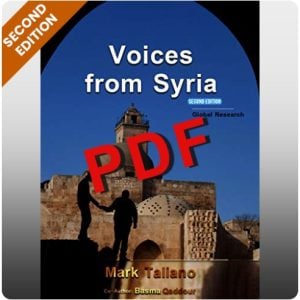The Fall of Assad: Syria’s Struggle Against Destabilization and Foreign Interests

The situation in Syria has reached a critical and tragic juncture, marked by the fall of the Assad government and a dramatic shift in the country’s governance. Recent developments indicate that militant groups, backed by external players—particularly the United States and Israel—have seized control of significant regions and now hold sway over the government itself. These events have amplified concerns about the overarching geopolitical strategy known as the “Greater Israel Project,” which critics argue aims to destabilize and fragment Middle Eastern nations perceived as opposing U.S. and Israeli interests.
The Current Landscape
Over the past months, Syria has experienced a rapid escalation in conflict. Militant factions, many with ties to extremist ideologies, have captured key territories and ultimately taken control of the government. This has culminated in President Bashar al-Assad reportedly fleeing the country as his regime’s power collapsed under the sustained pressure of foreign-backed insurgents.
The resurgence of these militant groups has been fueled by sophisticated weaponry, logistical support, and intelligence allegedly provided by external actors, including the United States and Israel. The timing of this collapse is significant. Russia, a key ally of the Assad government, has been unable to fully commit its military resources to Syria due to its ongoing war in Ukraine. This vacuum has been effectively exploited by militant groups, marking the culmination of efforts to unseat Assad after more than a decade of conflict.
The “Greater Israel Project” Allegations
The notion of a “Greater Israel Project” is often cited in analyses of Middle Eastern geopolitics. Proponents of this theory argue that the long-term goal is to fragment and weaken neighboring states to ensure Israeli regional hegemony. Syria, along with Libya, Iraq, Lebanon, and Iran, has been viewed as a target in this alleged strategy. The rapid destabilization and regime collapse in Syria are seen by critics as a step in this broader agenda.
Syria’s descent into chaos has its roots in the Arab Spring uprisings of 2011, which spiraled into a devastating civil war. The Assad government managed to hold power for years with support from Russia and Iran, but persistent interference by Western and regional powers prolonged the conflict and eroded Syria’s stability. The fall of Assad signifies a tipping point in the alleged efforts to dismantle opposition to U.S.-Israeli policies in the region.
The Role of the United States and Israel
The United States has long supported opposition groups in Syria, citing the need to promote democracy and combat terrorism. However, many of these groups have demonstrated extremist tendencies and have contributed to the fragmentation of the Syrian state. Israel’s involvement, primarily through airstrikes targeting Syrian and Iranian positions, underscores its strategic interest in neutralizing perceived threats near its borders.
Critics argue that these actions have exacerbated the crisis, facilitating the rise of militant groups and undermining legitimate state institutions. The fall of Assad’s government, they contend, is the culmination of a broader strategy aligned with the “Greater Israel Project” to weaken adversaries by fostering division and chaos.
The Aftermath and the Road Ahead
With Assad’s departure and the militant takeover of the government, Syria’s future hangs in the balance. The country’s infrastructure lies in ruins, millions of its citizens are displaced, and the prospect of peace remains elusive. Regional players like Iran and non-state actors such as Hezbollah face significant challenges in their efforts to counterbalance the influence of U.S.- and Israeli-backed forces. Meanwhile, Russia’s diminished focus on Syria has left Damascus without its most powerful ally during this critical period.
The fall of the Assad government represents a seismic shift not just for Syria but for the broader Middle East. The implications of this development are profound, potentially redrawing alliances and intensifying conflicts throughout the region. The ongoing turmoil serves as a stark reminder of the devastating impact of foreign interventions and the intricate web of geopolitics that defines the modern Middle East.
Conclusion
Syria’s struggle epitomizes the larger battle between regional sovereignty and external manipulation. With the Assad government toppled and militant factions in control, the international community faces a critical test. Without genuine dialogue and respect for national self-determination, the cycle of destruction may persist. Until then, Syria remains at the heart of a geopolitical storm that threatens to reshape the Middle East for generations to come.
*
Click the share button below to email/forward this article to your friends and colleagues. Follow us on Instagram and Twitter and subscribe to our Telegram Channel. Feel free to repost and share widely Global Research articles.
Global Research’s Holiday Fundraiser
Prof. Ruel F. Pepa is a Filipino philosopher based in Madrid, Spain. A retired academic (Associate Professor IV), he taught Philosophy and Social Sciences for more than fifteen years at Trinity University of Asia, an Anglican university in the Philippines. He is a regular contributor to Global Research.
Sources
Glass, Charles. Syria Burning: A Short History of a Catastrophe. Verso Books, 2015.
Ishay, Micheline R. The Levant Express: The Arab Uprisings, Human Rights, and the Future of the Middle East. Yale Books, 2019.
Phillips, Christopher. The Battle for Syria: International Rivalry in the New Middle East. Yale University Press, 2020.
Teitelbaum, Benjamin R. War for Eternity: Inside Bannon’s Far-Right Circle of Global Powerbrokers. HarperCollins B and Blackstone Publishing, 2020.
Van Dam, Nikolaos. The Struggle for Power in Syria: Politics and Society Under Asad and the Ba’th Party. Bloomsbury Academic, 1996.
Featured image source
Order Mark Taliano’s Book “Voices from Syria” directly from Global Research.
**Voices from Syria**
Author: Mark Taliano
ISBN Number: 978-0-9737147-9-1
Year: 2017
Product Type: PDF File
List Price: $6.50


